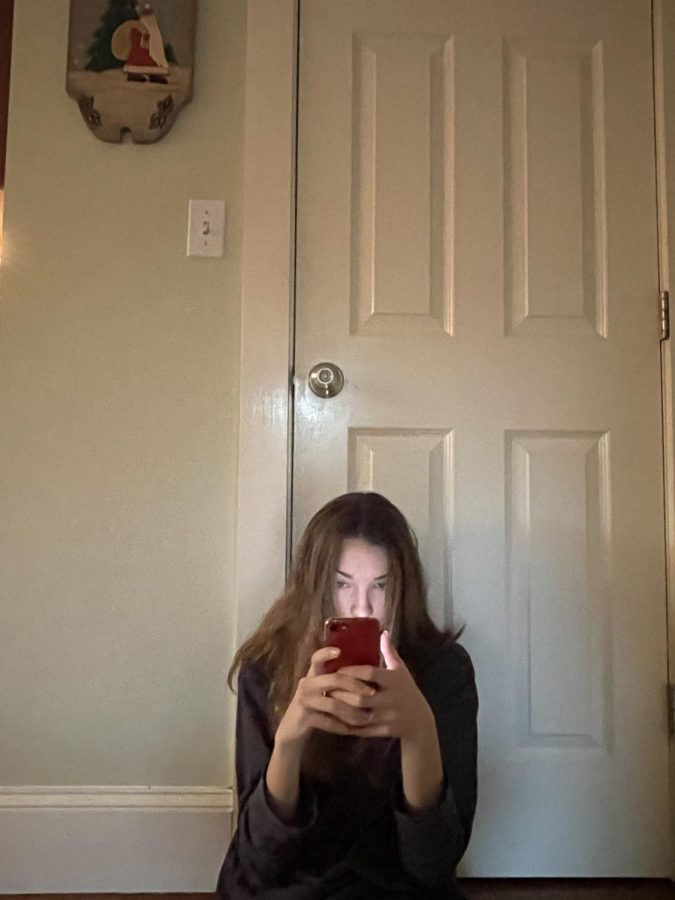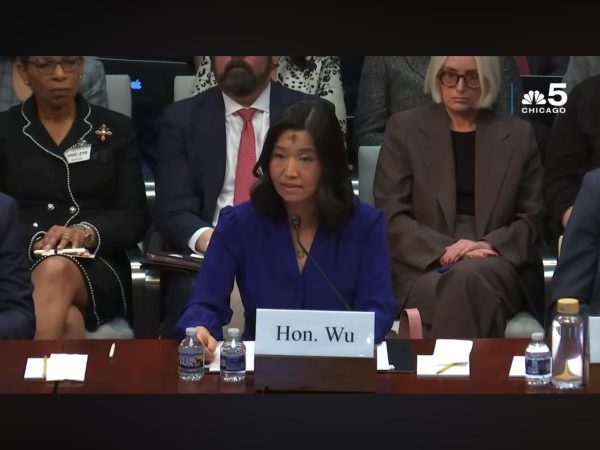Crushing Self Esteem One Follower at a Time
Young girls looking at social media can spiral comparing themselves to influencers
Have you ever been scrolling on your phone and happen to look up and notice the whole day has flown by? The sky is dark, and you now have 10 more insecurities you are worrying about? This has happened to me many times, and we also find examples of research that this happens to many teenage girls every single day. Social media and its influencers are tearing down the mental stability of young users who are using their apps. Something must be done to hold social media companies accountable for their impact on young girls and to strengthen their restraint against these influencers.
Although many teenagers became more active on social media during the COVID lockdown as a way to stay connected and talk to friends, research conducted by Facebook and shared by the Wall Street Journal showed that 32 percent of teenage girls said that Instagram made them feel worse about themselves and their bodies. While it is nice to be able to communicate with friends on social media during a pandemic, there are ways to do that without being on social media like facetime and texting. Facebook tried to bury the effects when presenting the research, hiding the truth and diminishing the issue. In his article Does Instagram Really Harm Girls? Laurence Steinberg, reports that the inside scoop came out when Frances Haughen, a former Facebook employee, confided that Facebook “purposely hid research showing that teenagers felt worse about themselves after using this product.” Although social media is a part of our generation and a way that lots of people communicate, we need to take into account that it is reducing the self esteem of young girls and putting their mental and physical well being at risk.
Social media influencers have a substantial impact on all teens, but most specifically on teen girls. Influencers are paid based on the number of followers they have, and they make a large amount of their income based on the amount of money they get their followers to spend on products from sponsored companies. These products target the weaknesses and shortcomings that young girls feel they have and try to trigger them to spend their money to fix themselves. Some influencers make it their job to have a positive effect on people; however it is everyone’s first response to compare themselves to others, so teen girls can’t help but compare themselves to influencers and set unrealistic expectations for themselves. In her article For Teen Girls, Instagram is a Cesspool, Lindsay Crouse presents astonishing numbers about the sales of the global beauty industry which are predicted to skyrocket from 226 billion dollars in 2020 to more than 400 billion dollars by 2027 because these industries are relying on women and young girls for income. John Herrman shares the specifics of the TikTok industry in his article Will TikTok Make You Buy It? . Just like the #TikTokMadeMeBuyIt trend, influencers have a way of speaking to their followers in a natural and friendly manner, giving the sense that the content is not a paid ad, but for every purchase they encourage, they receive revenue.
Influencers can pressure teenaged-followers to start dieting and working out and can lead people to have eating disorders and a negative relationship with food. Crouse highlights that because of Instagram’s algorithms, once a person starts to follow one dieting account, other more extreme accounts start to pop up like ‘’Eternally starved,” ”I have to be thin” and ”I want to be perfect.” Eating disorder content is making teen girls more depressed and fueling their insecurities in order to make money off of them.
Because this is such a prevalent issue right now, social media consumers need to take a stand and learn how these trends can be fixed. More should be done, but three ways we can decrease the anxiety social media is causing teens are: increasing the age minimum for account membership, requiring influencers to admit that they are making paid promotions, and eliminating the option for influencers to photoshop pictures that are shared with their young audiences. We need to help today’s teen girls and the generation to come!

Norah Keys is a senior at HWRHS and a student journalist for the General Consensus. At school, Norah is the yearbook editor and a leader of the Outing...







